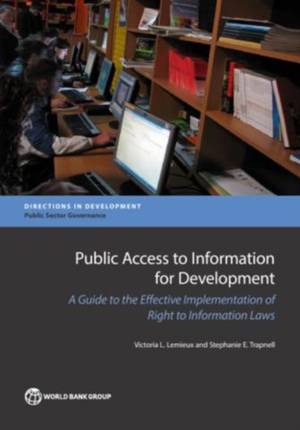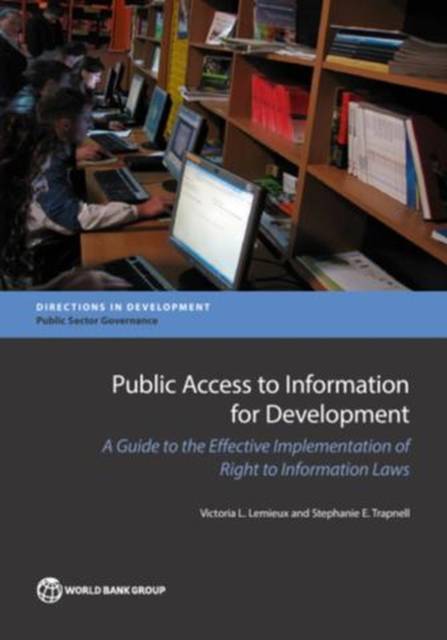
- Afhalen na 1 uur in een winkel met voorraad
- Gratis thuislevering in België vanaf € 30
- Ruim aanbod met 7 miljoen producten
- Afhalen na 1 uur in een winkel met voorraad
- Gratis thuislevering in België vanaf € 30
- Ruim aanbod met 7 miljoen producten
Zoeken
Public Access to Information for Development
A Guide to Effective Implementation of Right to Information Laws
Victoria L LeMieux, Stephanie E Trapnell
€ 45,45
+ 90 punten
Omschrijving
With over 100 right to information (RTI) laws also called freedom of information or access to information laws now in place globally, the groundwork has been laid to advance more transparent, accountable and inclusive governance as a pathway to poverty reduction and economic development. This Guide explores the historical development of RTI laws, the factors that drive passage and effective implementation of these laws, the operation of the laws, the impact that these laws have had in different country contexts and sectors, as well as the challenges of measuring the contribution of RTI laws to development outcomes. The Guide is based on two years research studying how RTI has been implemented in countries in different regions and with varying income levels around the world. The research has aimed both to develop a theoretical framework by which to identify the drivers of effective implementation of RTI laws as well as to support measurement of effective implementation, the outcomes of which are discussed in this Guide. The Guide grapples with questions such as: what does it mean to have effectively implemented a RTI law? What aspects of a law have to be operational before it can be said to have been effectively implemented? What other factors are most critical to the effective implementation of RTI laws? And, why does effective implementation of RTI matter?"
Specificaties
Betrokkenen
- Auteur(s):
- Uitgeverij:
Inhoud
- Aantal bladzijden:
- 156
- Taal:
- Engels
- Reeks:
Eigenschappen
- Productcode (EAN):
- 9781464808791
- Verschijningsdatum:
- 24/05/2016
- Uitvoering:
- Paperback
- Formaat:
- Trade paperback (VS)
- Afmetingen:
- 178 mm x 249 mm
- Gewicht:
- 272 g

Alleen bij Standaard Boekhandel
+ 90 punten op je klantenkaart van Standaard Boekhandel
Beoordelingen
We publiceren alleen reviews die voldoen aan de voorwaarden voor reviews. Bekijk onze voorwaarden voor reviews.











